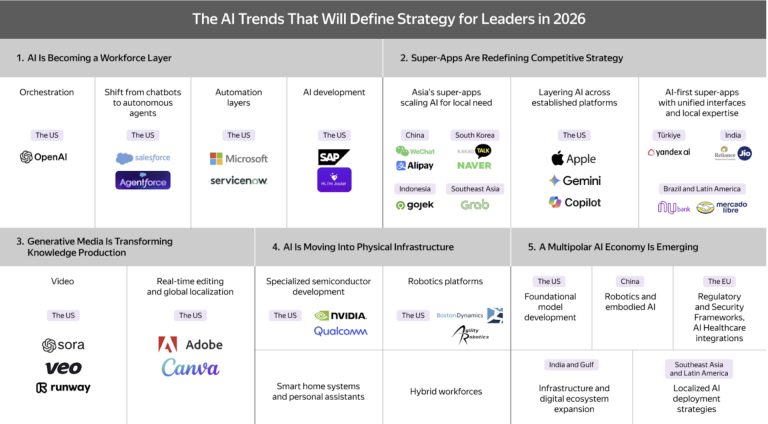
Gen Z is ambitious about achieving financial independence, a new survey has found.
When asked at what age they expect to reach financial independence — defined as “having the resources to meet your needs and pursue your goals without relying on employment income" — the average answer was 32, according to a survey by The Harris Poll. The survey defined Gen Z as individuals between ages 18 and 28.
Rather than relying on traditional 9-to-5 jobs, many Gen Zers plan to reach this goal through investing and entrepreneurship.
Must Read
- Thanks to Jeff Bezos, you can now become a landlord for as little as $100 — and no, you don’t have to deal with tenants or fix freezers. Here’s how
- I’m 49 years old and have nothing saved for retirement — what should I do? Don’t panic. Here are 6 of the easiest ways you can catch up (and fast)
- Dave Ramsey warns nearly 50% of Americans are making 1 big Social Security mistake — here’s what it is and 3 simple steps to fix it ASAP
Disillusioned with traditional pathways to success
Sixty percent of Gen Z respondents said a full-time job wouldn’t allow them to reach their financial goals, compared to just 35% of baby boomers who said the same.
Given the economic challenges that Gen Z has faced — such as a global pandemic, job-market instability, record inflation, and rising living costs — it’s not surprising they feel this way.
Their skepticism toward traditional paths to financial success may reflect broader shifts in the U.S. economy that began decades ago. Baby boomers entered a workforce where a single income from a blue-collar job could often support a family and buy a home.
Today, even a college degree — often accompanied by significant debt — doesn’t guarantee a job in one’s field or a living wage.
Still, Gen Z hasn’t given up on financial success: they just believe the path looks different. In fact, 51% said a traditional 9-to-5 job isn’t essential to achieving it.
Read more: Robert Kiyosaki warns of a ‘Greater Depression’ coming to the US — with millions of Americans going poor. But he says these 2 ‘easy-money’ assets will bring in ‘great wealth’. How to get in now
Why are Gen Zs going their own way?
The rise of influencers may help explain Gen Z’s belief that financial independence at a young age is achievable — but it’s not the whole story.
Gen Z is also more likely to seek financial advice on social media: while 36% of Americans overall said they’d turn to social platforms over a traditional financial advisor, that figure rises to 62% for Gen Z, according to the survey.
And they appear to be acting on that advice. A whopping 60% of Gen Z respondents said they invest in the stock market outside of their 401(k)s.
Beyond investing, Gen Z came of age during the rise of the side hustle. A Bankrate survey found that nearly half of millennials and Gen Zers have side gigs, with Gen Z earning an average of $958 per month from them.
One Gen Z respondent to the Harris Poll survey said that even with a traditional 9-to-5 job, raising a family would likely require living on a bare-bones budget — similar to the frugal lifestyle promoted by the FIRE (financial independence, retire early) movement.
The costs and benefits of saying no to 9-to-5
The high cost of living is a growing concern for Americans. A recent poll conducted by Morning Consult found that 83% of respondents were worried about grocery prices, 47% about rent or mortgage payments, and 64% about unexpected medical bills. Nearly half (48%) said they’d struggle to cover a $500 emergency without borrowing.
Given these pressures, it’s no surprise Gen Z is seeking financial stability beyond the traditional job market. Side hustles are at an all-time high, with 5.4% of Americans now holding more than one job, according to the U.S. Bureau of Labor Statistics.
While second jobs can boost income, or sometimes just to make ends meet, they also carry risks of burnout and reduced performance.
Entrepreneurship is another route Gen Z is pursuing. A 2022 study by Global Entrepreneurship Monitor found high rates of both entrepreneurial activity and “intention” among Gen Z — a trend not seen in previous generations.
While they bring fresh ideas and a strong understanding of youth markets, many lack the financial resources and experience to succeed. The study recommends targeted support through college and youth programs.
Gen Z is also leaning into investing. With time on their side, they can benefit from compound interest — however, long-term success requires discipline.
Avoiding “get-rich-quick” schemes, setting clear investment goals, and starting early with retirement planning are key steps to building lasting financial security.
The rest of us can take note: whether through a side hustle, starting a business, or investing for the future, taking control of your finances is essential — no matter your age.
What to read next
- The ‘Oracle of Wall Street’ who predicted 2008 crash sees trouble in US housing — and says boomers aren’t as rich as many think. Why that’s a problem
- There’s still a 35% chance of a recession hitting the American economy this year — protect your retirement savings with these 5 essential money moves ASAP
- This tiny hot Costco item has skyrocketed 74% in price in under 2 years — but now the retail giant is restricting purchase. Here’s how to buy the coveted asset in bulk
- Want an extra $1,300,000 when you retire? Dave Ramsey says this 7-step plan ‘works every single time’ to kill debt, get rich in America — and that ‘anyone’ can do it
Join 200,000+ readers and get Moneywise’s best stories and exclusive interviews first — clear insights curated and delivered weekly. Subscribe now.
This article provides information only and should not be construed as advice. It is provided without warranty of any kind.


